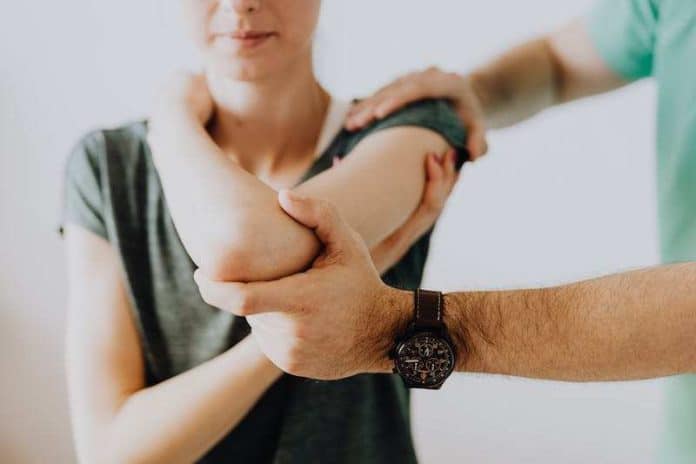
If you’re one of the many people suffering from elbow pain, you’re likely eager to identify what’s causing your discomfort.
Elbow pain is a pervasive condition affecting individuals across all age groups. While prior injury, overuse, and arthritis represent well-established risk factors, the elbows prove surprisingly vulnerable even during ordinary daily activities.
Through repetitive overexertion and sustained awkward postures, habitual behaviors can impose gradual damage over time. What are the common yet overlooked lifestyle factors that may exacerbate elbow pain?
The consequence of Poor Posture
Sitting in poor posture at desks for extended periods can strain the body. Bending the elbows at sharp angles and hunching the shoulders forward places undue tension on the muscles and soft tissues. Over time, this sustained strain can lead to inflammation and pain.
How to Avoid:
- Use a lumbar cushion or rolled towel to support the lower back and maintain proper spinal alignment
- Sit upright with shoulders stacked directly above hips
- Position computer screens and keyboards directly in front to ensure proper head and neck positioning
- Take regular standing and stretching breaks to relieve accumulated strain
Hidden Trigger – Easygoing Smartphone Habits
Constantly looking down at our phones and tablets can truly take a toll on our elbows. All that repetitive strain from tilting wrists and hunching shoulders adds up. This eventually irritates the tendons and compresses the nerves running through the joints.
How to Avoid :
- Prop up devices instead of holding them low
- Take 15-second stretch breaks routinely to straighten arms
- Text two-handed to balance out the workload
- Use grips and stands to text with neutral wrists at eye level, reducing neck hunching
The Challenge of Carrying Heavy Loads
Carrying heavy bags frequently puts a lot of stress on the arms, shoulders, and elbow joints. Lugging around heavy loads directly weighs down the elbows and strains the arm and shoulder muscles over time.
The excessive and repetitive burden causes irritation to the tendons and can accelerate the wearing down of the cartilage cushioning the elbow joint.
How to Avoid :
- Use rolling carts or wide-strapped shoulder bags when possible to transport heavy items
- Engage your leg and core muscles when lifting heavy bags – don’t rely solely on your arm strength
- Switch which hand or shoulder carries the weight so one elbow doesn’t bear the full burden
- Consider wearing supportive elbow braces if you need to lift heavy loads frequently to help stabilize the joint
- Take breaks from carrying when possible and stretch your arms to relieve any tension built up
Repetitive Strain Injury
Jobs or hobbies requiring repetitive motions like typing, cleaning, cooking, etc. can gradually irritate elbows. Tiny strains build up without you noticing until there’s a larger issue.
How to Avoid :
- Take microbreaks to fully extend and stretch arms, varying the motions
- Do targeted strengthening exercises to reinforce joints against repetitive demands
- Consider supportive braces or splints for extra joint stability
- Check-in regularly on tension and soreness so problems don’t sneak up
Skipping the Warm-Up
Jumping into sports, weightlifting, yoga, or music without warming up leads to unnecessary injury. When muscles stay cold, they cannot absorb shocks as well.
How to Avoid :
- Take 5-10 minutes to gently mobilize before activities – do shoulder rolls, gentle arm swings, and range of motion stretches
- Cool down gently after workouts to allow muscles to transition safely
- Ease into new activities gradually to prevent shocking your system
Listening to Early Warnings
Pay attention if your elbows protest certain positions or tasks. Even mild soreness now can be a warning sign of strain before major damage occurs.
Don’t ignore the early signs of discomfort or fatigue. Your body sends signals about improper mechanics or overuse – listen closely to what it tells you. Addressing elbow issues early can prevent more severe injury down the road.
Seeking Professional Help
If lifestyle changes don’t resolve continuous worsening pain, seek medical advice. A physical therapist can assess your unique situation and provide specialized treatment like targeted stretching, joint mobilization, ultrasound therapy, or taping.
For severe cases, a doctor may consider steroid injections to reduce inflammation or surgery to release trapped nerves. Don’t withstand prolonged pain without guidance.





